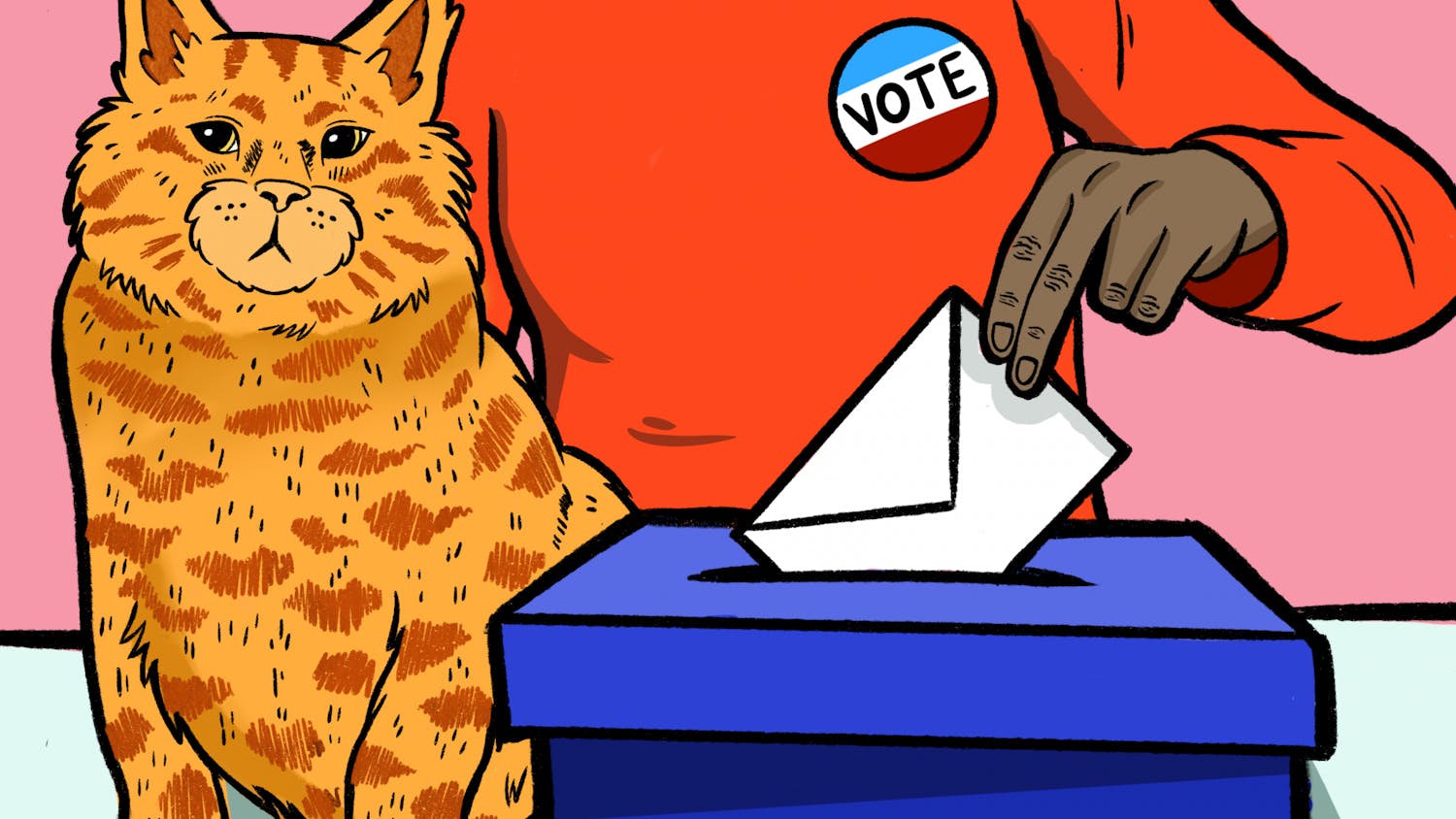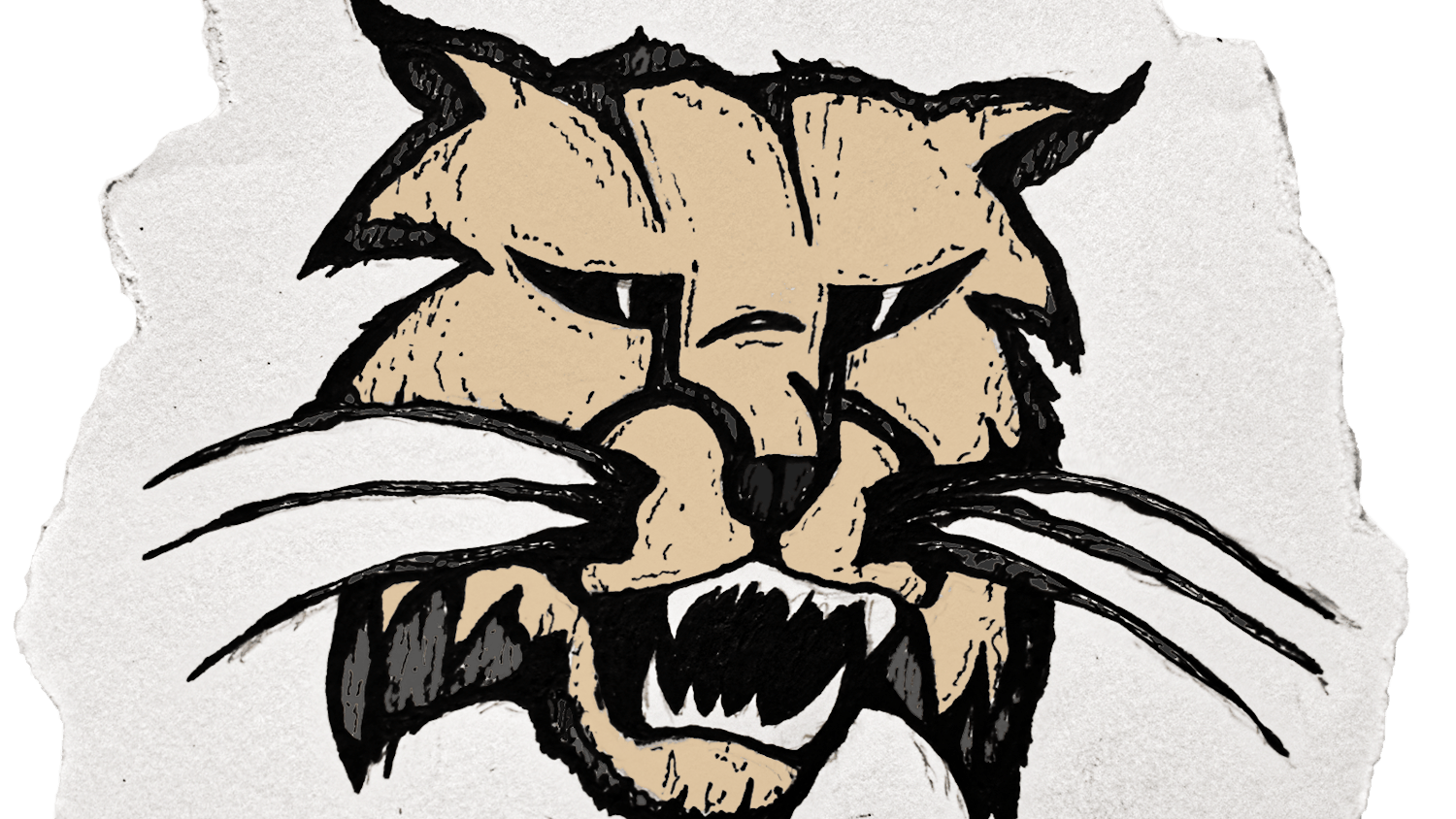A quote from the Northwest Ordinance of 1787 reads: "Religion, morality and knowledge, being necessary to good government and the happiness of mankind, school and the means of education shall forever be encouraged."
From Article III of the ordinance that led to the creation of the 17th state of the U.S., Ohio, this quote can be found etched on the Class Gateway in front of College Green—depending on where someone is standing. Although those words were written two centuries ago, their meaning still has roots in Ohio University's purpose and tradition on the college's 219th birthday.
The territory marked under the Northwest Ordinance is on Shawnee, Delaware, Miami, Wyandot, Ottawa and Potawatomi land.
OU was the first institution established in the Northwest Territory following the ordinance's passage in 1787, according to Ohio History Central. Manasseh Cutler, who helped pass the Northwest Ordinance, is considered responsible for founding OU. Also, according to Ohio History Central, Cutler graduated from Yale and modeled OU after the school's charter. On Feb. 18, 1804, state legislatures passed an act establishing OU.
Brian Schoen, the chair of the history department and associate professor of history takes students in one of his classes to the Class Gateway either at the beginning or end of the course to understand early U.S. history and OU's history.
"Even though the language may sound outdated to us, and students might think (of) religion, but it was a university that was founded not primarily to train ministers, although that was what many of the early students did, but it was primarily to train civic leaders because that was going to be needed in this new republic," Schoen said.
Tradition, history and spirit are just some of the core features of OU and for people visiting for the first time, the campus and school can surprise people.
"Our department has had several conferences and hosted many people from all around the world and when they come to Athens, it's one of the first things they comment on, like, 'Wow, I had no idea. I had no idea that there was this university that was this old and that looks like what my idea of a university should be,'" said Schoen. "So in my view, that's something that we can embrace and be proud of."
A lot of OU's history, from student records to the former university president's papers, is kept in the Hwa-Wei Lee Library Annex. Bill Kimok is the university archivist and records manager at OU and has been the records manager for 24 years as of this February. Kimok became the university archivist in 2003 and manages all various documents and collections. Currently, Kimok is organizing and processing a collection of materials relating to LGBTQ+ history on campus.
As Founders Day approaches, people interested in learning more about OU's history can observe the digital exhibits Kimok created. The first large-scale recognition of OU's founding and founders, according to Kimok's digital exhibit from 2022, took place somewhat unofficially in 1915. A celebration occurred in mid-June that year to honor the 100th anniversary of the first graduation from the university. The grand pageant consisted of five events, including glee clubs singing and the unveiling of the alumni gateway.
The celebrations of OU's beginnings could not be possible without the students. Although college students have changed over the past two centuries, they have always played an important role in determining the university's course.
"I discovered as I was doing research that students are a big part of the early Founders Day operations, and they really wanted to connect students with this sort of magical, rich past of Ohio University," Kimok said.
The first official Founders Day was in 1920, on the exact day of OU's birthday. Alumni came to celebrate and students and faculty were crucial in making the Founders Day events successful, according to Kimok's exhibit. The importance of maintaining records of past life at OU can be measured by viewing changes that students tend to make.
"Anything that students do over time, their scrapbooks, the handbooks, all those things tell us change over time, what's happened, and that's the definition of history," said Kimok.
There are aspects of tradition at OU that some students are especially passionate about. Chase Ellis, a senior studying engineering technology management, is the president of the O-Zone Student Section and feels strongly about Bobcat spirit.
"When I first started (at the O-Zone), and I learned the history of our student section, it existed in forms since the 1980s, but one of our main trademarks that we have is our 'Winning team, losing team' chant … I've heard many different forms of where it originated on campus," Ellis said. "It was forgotten about through the 90s and when the O-Zone (was) first formally founded in January of 2001, it was brought back."
Ellis, as president, has been working to revive the student section and its organization. Cheering on other students may also be something that has not changed since OU's founding.
This year, there are multiple Founders Day activities, such as a Birthday Bash on Feb. 18 from 1 p.m. to 4 p.m. at Baker Center Ballroom. The event will include food, activities and performances. People can also listen to the Cutler Hall bells chime play "Alma Mater, Ohio" at 2:19 p.m. on Feb. 18 per tradition. People can also check out a digital exhibit focused on Margaret Boyd, the first woman to graduate from OU, made by the Mahn Center for Archives and Special Collections.
When looking back at when and how OU was established, some qualities make the university different from others. Founders Day allows people to consider OU's past and how the university has changed over time.
"There are so many universities and campuses in our state, and in our country and a lot of really great schools," Schoen said. "What sets us apart? It is this connection back to this really formative time in which there was so much that was unclear. Is the country going to survive? What does it mean to be part of a democratic country? All of those things were contested, and one of the places where people were working through those very challenges was here in Athens, Ohio."






